Python in Personalized Education: Adaptive Learning
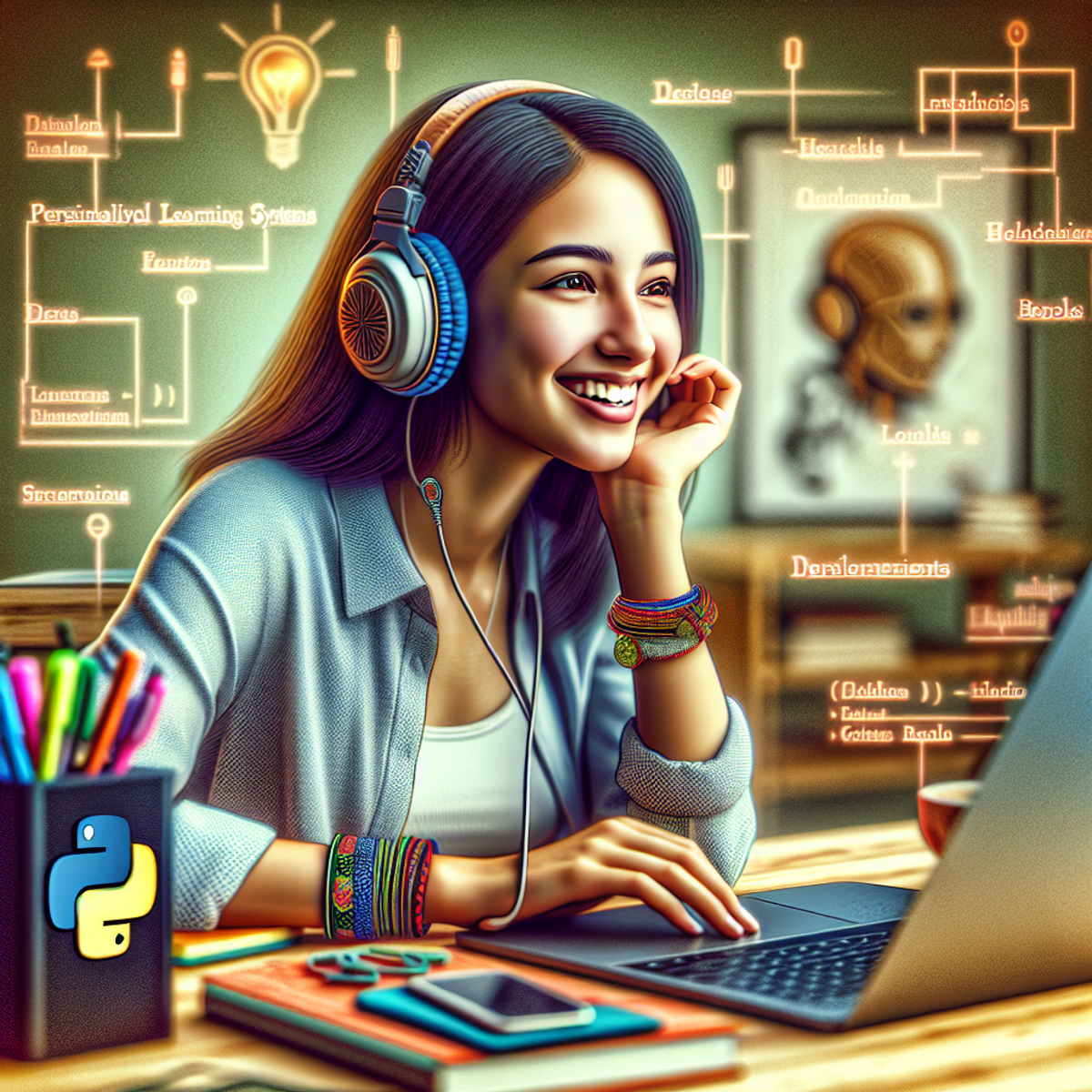
Python in Personalized Education: Adaptive Learning
Introduction
Personalized education and adaptive learning are two concepts that have gained significant attention in the field of education. Personalized education refers to the approach of tailoring educational experiences to meet the unique needs and preferences of individual learners. On the other hand, adaptive learning involves the use of technology and data analysis to dynamically adjust learning content and activities based on a learner's progress and performance.
Python, a versatile programming language, has emerged as a powerful tool for implementing adaptive learning strategies in education. With its wide range of libraries and frameworks, Python enables developers to create intelligent systems that can adapt to students' learning styles, pace, and interests.
In recent years, Python has been extensively used in adaptive learning environments to enhance engagement, knowledge retention, and academic performance. Through the integration of artificial intelligence (AI) techniques, Python-based systems are capable of monitoring students' progress, analyzing their learning patterns, and delivering personalized content.
By harnessing the potential of AI-powered adaptive learning systems developed with Python, educators can provide students with tailored educational experiences that foster deeper understanding and mastery of concepts. These systems utilize various techniques such as collaborative filtering, content-based filtering, knowledge tracing models, reinforcement learning algorithms, and neural networks to create dynamic and responsive learning environments.
"Python has revolutionized the field of personalized education by empowering educators to create adaptive learning systems that cater to each student's unique needs."
Python's flexibility and ease of use make it an ideal choice for developing adaptive learning platforms. Let's explore some real-world examples that highlight Python's role in personalized education:
- Khan Academy: Khan Academy, a popular online learning platform, utilizes Python for its recommendation system. By analyzing user data and behavior patterns, Python-powered algorithms recommend relevant educational content to individual learners.
- Duolingo: Duolingo is a language learning app that employs Python for its adaptive exercises and personalized feedback. The system adapts to each learner's proficiency level, providing tailored exercises to reinforce specific language skills.
- Carnegie Learning: Carnegie Learning, an educational technology company, integrates Python into its math curriculum. Python-powered adaptive learning systems analyze students' performance and provide personalized feedback and additional resources to address individual learning gaps.
While Python offers numerous advantages for personalized education and adaptive learning, it is essential to acknowledge certain limitations:
- Python-based systems may require substantial computational resources, which could pose challenges for schools with limited access to modern technology.
- The implementation of AI algorithms in educational settings necessitates careful consideration of privacy and security concerns surrounding student data.
- Adequate teacher training is crucial for effectively integrating Python-based adaptive learning systems into existing teaching practices.
Despite these challenges, the integration of Python and AI in education holds immense potential for revolutionizing personalized learning experiences. In the following sections of this article, we will delve deeper into the concept of adaptive learning and explore how Python plays a pivotal role in its implementation. We will also address ethical considerations and discuss the future possibilities where Python can drive innovation in personalized education. So let's get started on this exciting journey!
Understanding Adaptive Learning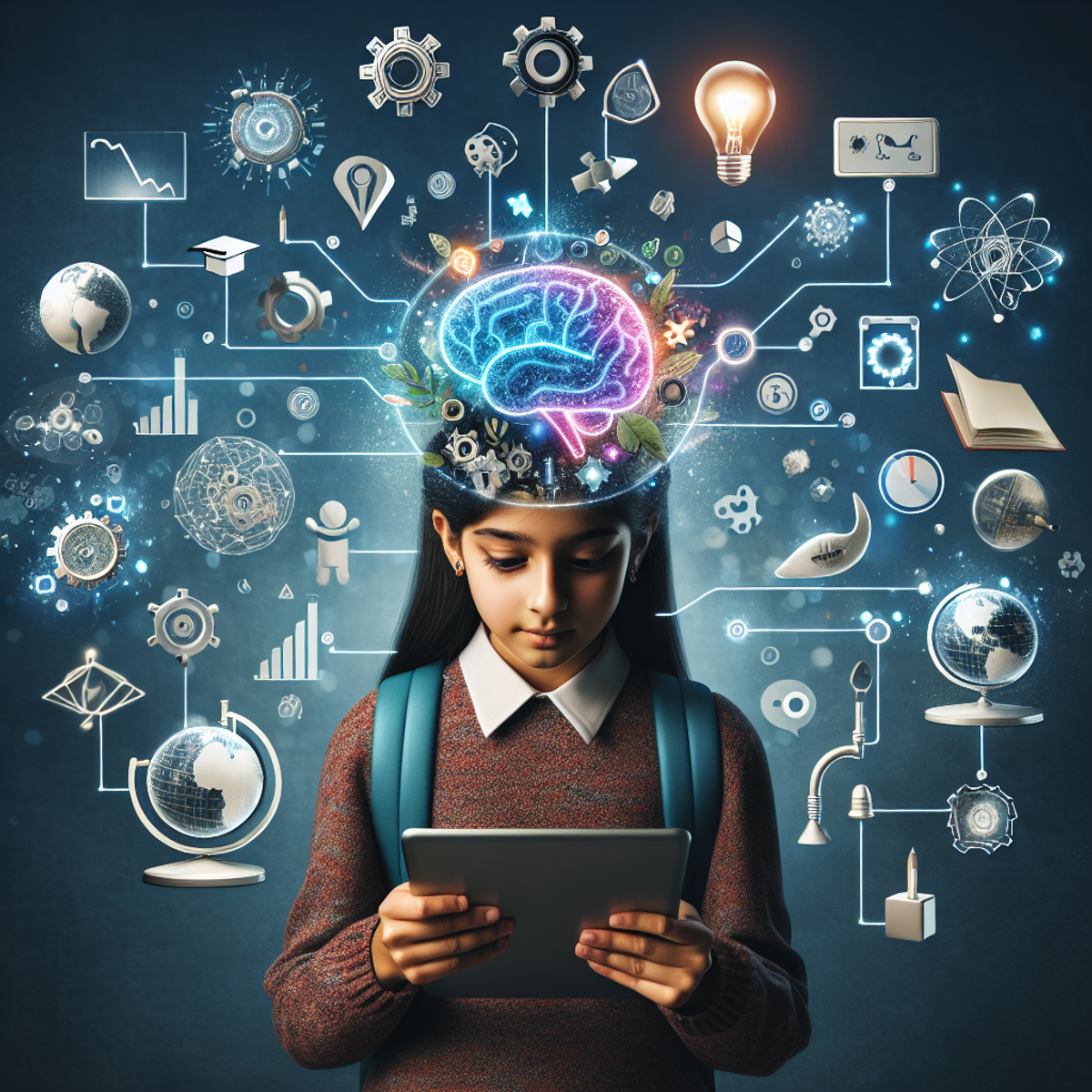
Adaptive learning is a personalized education approach that tailors the learning experience to individual students' needs, interests, and pace. It utilizes advanced techniques to create dynamic and responsive learning environments.
Techniques Used in Adaptive Learning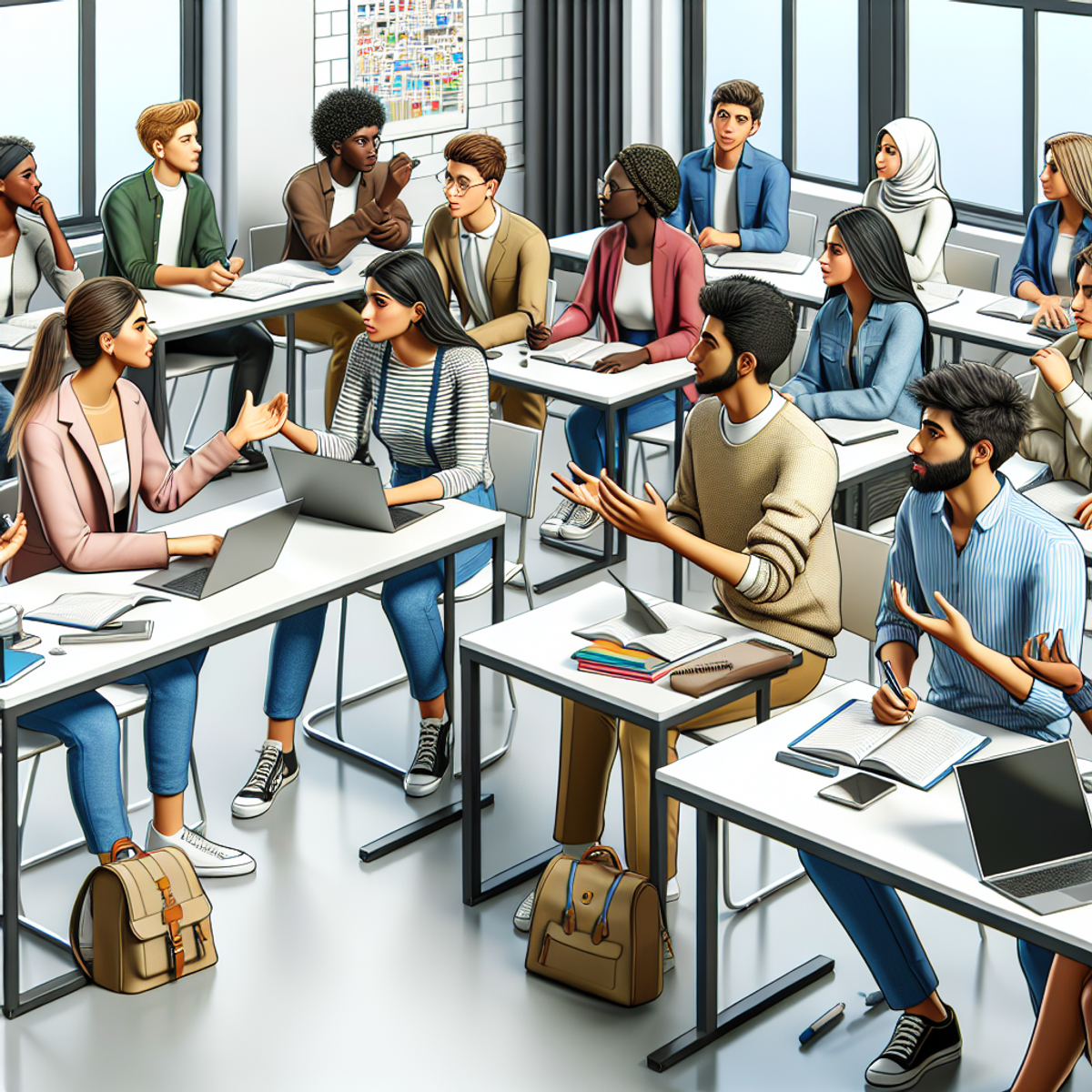
Collaborative Filtering
Collaborative filtering is a technique used in adaptive learning systems to analyze and predict a student's preferences and learning patterns based on the behavior of similar students. By comparing a student's behavior with that of other learners, the system can recommend personalized educational content that aligns with their interests and needs.
Content-Based Filtering
Content-based filtering involves recommending educational material based on its attributes and relevance to a student's previous interactions. This technique focuses on understanding the characteristics of the content and matching it to the student's individual learning style and preferences.
Knowledge Tracing Models
Knowledge tracing models are used to estimate a student's knowledge state over time by analyzing their responses to different educational tasks. These models help in identifying areas where a student may need additional support or challenges, enabling the system to dynamically adjust the difficulty level of the content.
Reinforcement Learning
Adaptive learning systems leverage reinforcement learning algorithms to adapt educational content for each student based on their performance and interaction with the material. By providing personalized feedback and adjusting the difficulty of tasks, these algorithms optimize the learning experience for individual students.
Role of Neural Networks
Neural networks play a crucial role in building dynamic and responsive learning environments by processing vast amounts of data related to student interactions, preferences, and performance. These networks enable adaptive learning systems to continuously evolve and personalize the educational journey for each student.
In summary, adaptive learning encompasses various sophisticated techniques that enable personalized education experiences, catering to individual learning styles, pace, and interests. Through collaborative filtering, content-based filtering, knowledge tracing models, reinforcement learning algorithms, and neural networks, adaptive learning platforms can offer tailored educational content that maximizes engagement and knowledge retention for students.
Python's Role in Adaptive Learning with Real-World Examples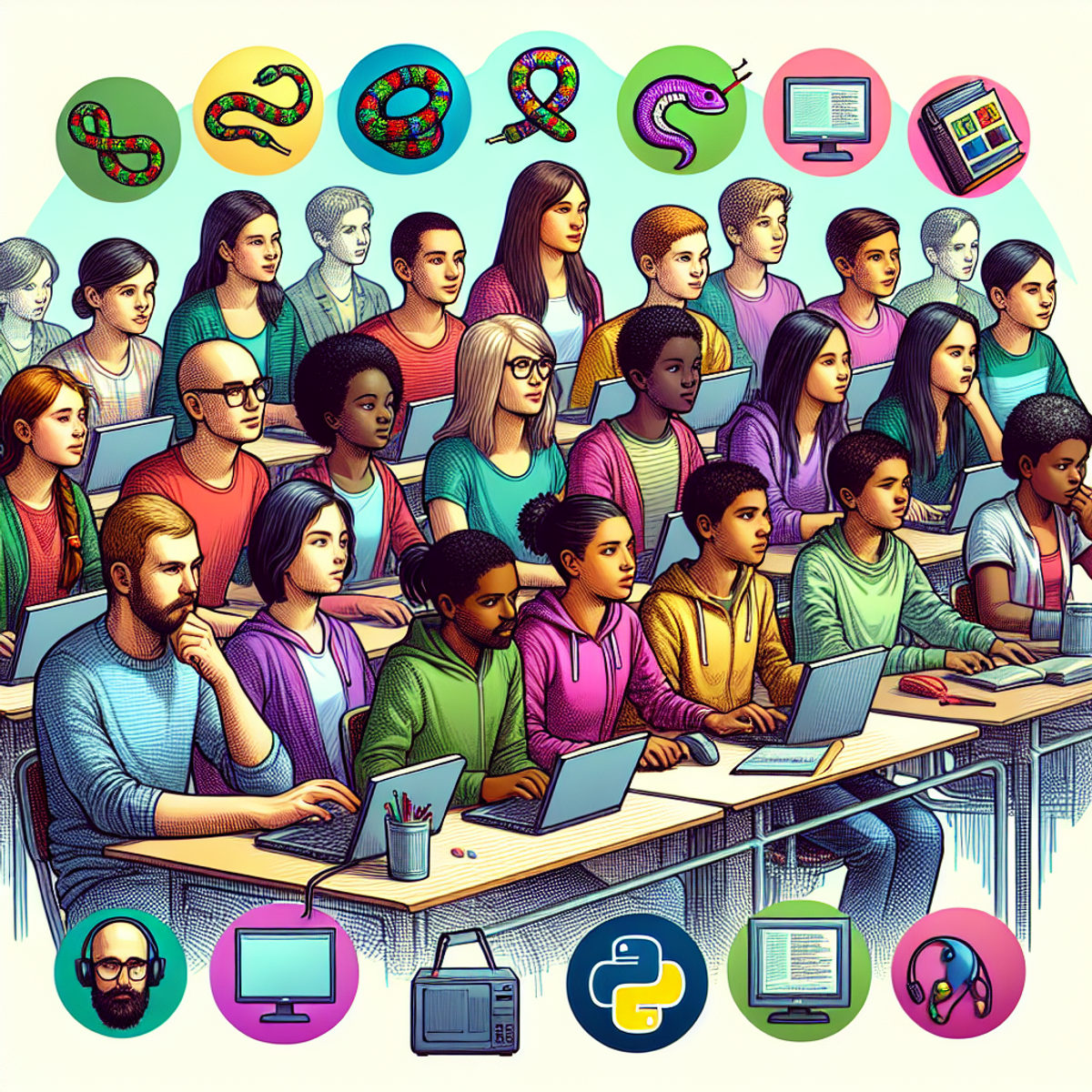
Overview of Python as a Preferred Language for Developing Adaptive Learning Platforms
Python has gained significant popularity as the go-to programming language for developing adaptive learning platforms due to its versatility, extensive libraries, and user-friendly syntax.
The simplicity and readability of Python make it an ideal choice for educational technology developers, allowing them to focus on the logic and functionality of adaptive learning systems rather than getting bogged down in complex syntax.
Advantages and Limitations of Using Python for Personalization in Education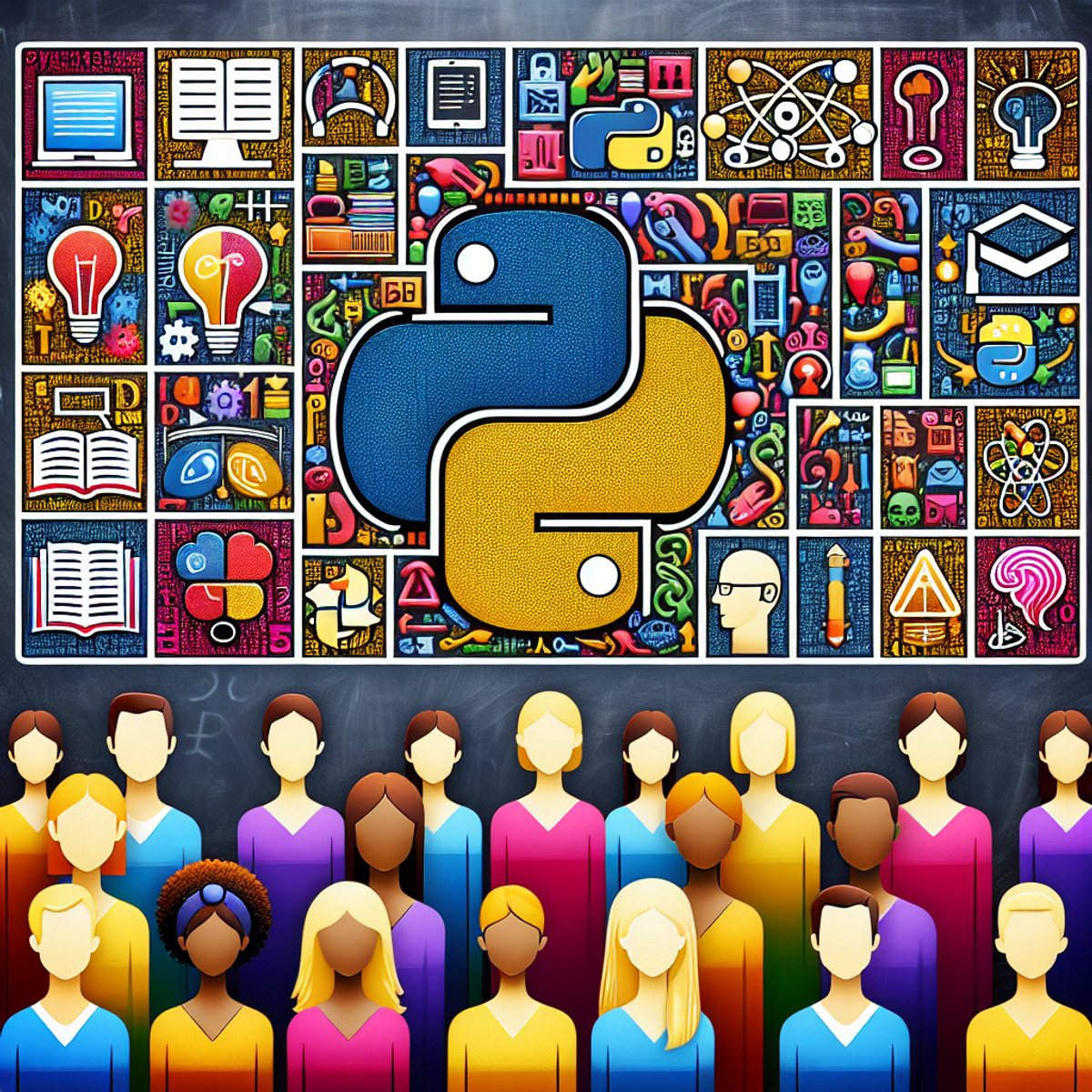
Advantages:
- Versatility: Python offers a wide range of libraries and frameworks that support the development of adaptive learning systems, including data analysis, machine learning, and natural language processing.
- Community Support: The large and active Python community provides access to a wealth of resources, tutorials, and ready-made solutions that can expedite the development process.
- Scalability: Python's scalability makes it suitable for projects of varying sizes, from simple recommendation engines to complex adaptive learning platforms.
Limitations:
- Performance: While Python excels in rapid development, it may not always deliver the same level of performance as lower-level languages such as C++ or Java.
- Resource Intensiveness: Resource consumption can be higher compared to other languages, which may affect the efficiency of certain operations in resource-constrained environments.
Creating Recommendation Systems with Python and the scikit-learn Library
Understanding How Recommendation Systems Work in the Context of Personalized Education
In personalized education settings, recommendation systems play a pivotal role in delivering tailored learning experiences. These systems leverage user data to predict preferences and suggest relevant educational content. Example scenarios include recommending additional reading materials based on a student's interests or suggesting practice exercises aligned with their current skill level.
Step-by-Step Guide to Building a Simple Recommendation Engine with Python Using the scikit-learn Library
To illustrate the practical application of recommendation systems in personalized education, let's consider an example of building a basic movie recommendation engine using Python and the scikit-learn library. This example demonstrates the steps involved in constructing a simple yet effective recommendation system.
- Data Collection: Obtain a dataset containing information about movies, such as genres, ratings, and user reviews.
- Data Preprocessing: Cleanse and prepare the dataset for analysis by handling missing values, normalizing data, and encoding categorical variables if necessary.
- Feature Engineering: Extract relevant features from the dataset that will be used to make recommendations, such as movie genres or user preferences.
- Model Training: Utilize scikit-learn to train a recommendation model based on user behavior and preferences.
- Prediction Generation: Implement the trained model to generate personalized movie recommendations for users based on their historical interactions with similar content.
By following this step-by-step guide, developers can gain practical insights into building recommendation systems using Python and its associated libraries.
Python serves as an invaluable tool for realizing adaptive learning environments through its robust capabilities for developing recommendation systems and leveraging machine learning algorithms. Its advantages in terms of versatility, community support, and scalability outweigh its limitations related to performance and resource usage. With
Addressing Challenges and Ethical Considerations in Personalized Education with Python
In the world of personalized education and adaptive learning, it's important to tackle the challenges and ethical issues that come up when using Python-based methods. As technology becomes more and more involved in education, we need to focus on privacy, student data security, and using technology ethically.
The Importance of Privacy and Data Security
Privacy is a big concern in personalized education. When we use Python for adaptive learning, we must take steps to protect students' personal information. This means making sure that sensitive data like names, addresses, and other identifying details are stored securely and encrypted.
To reduce privacy risks:
- Educational institutions and developers should follow standard security practices like secure data transmission, encryption algorithms, and strong access controls.
- Regular checks should be done to make sure everything is compliant with relevant data protection laws.
Ethical Issues in Using Python for Personalized Education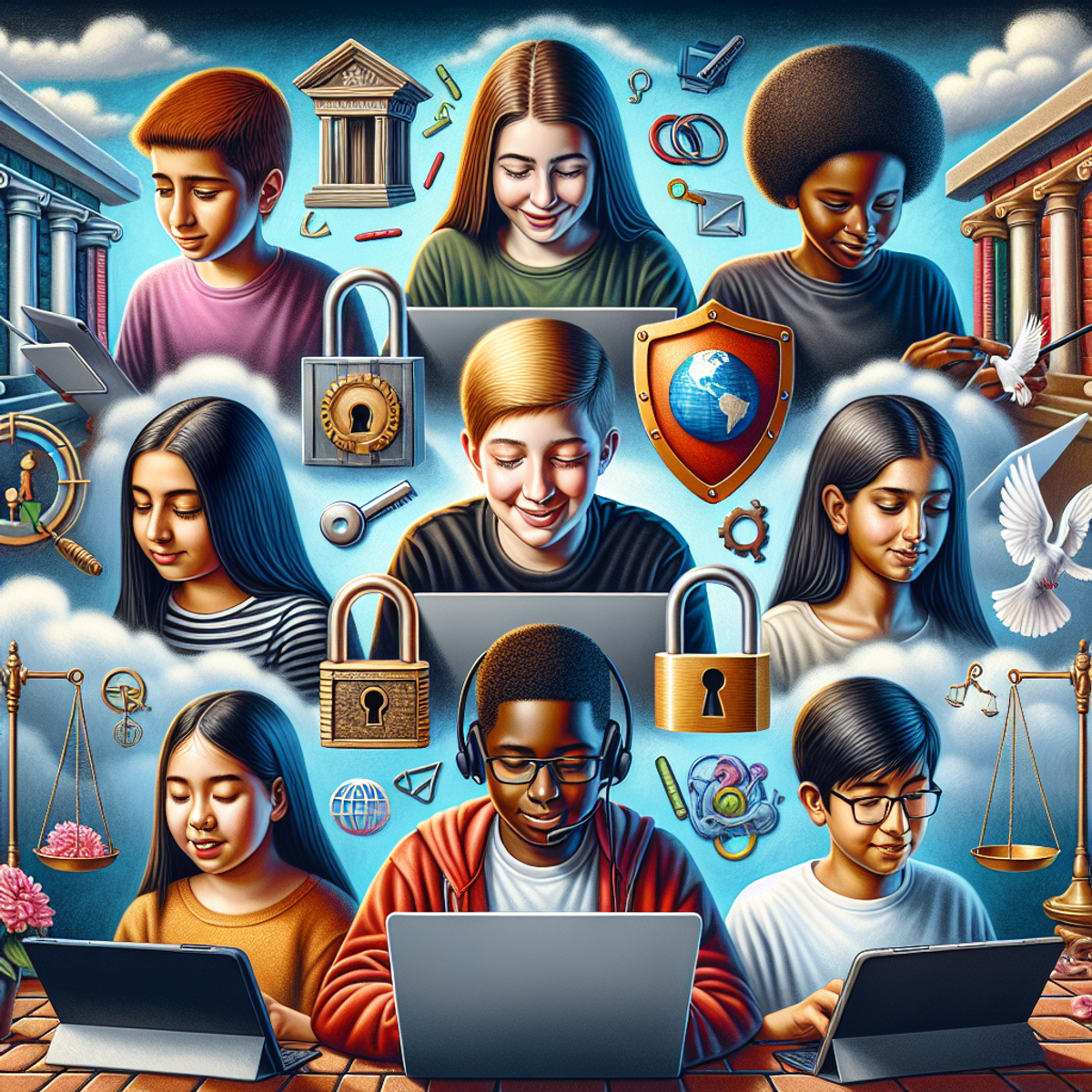
Ethics are crucial when it comes to using Python for personalized education. Here are some important ethical points to remember:
- Equity: We need to make sure that personalized education doesn't make existing educational inequalities worse. We should work towards closing the digital gap and giving every student equal opportunities.
- Transparency: Students and their families should know exactly how their data will be used for personalized learning. We have to be open about how we collect, store, and use data to build trust.
- Consent: It's essential to get permission from students or their parents/guardians before collecting or using their personal data. Consent should be clear and easy to understand so that everyone can make an informed choice about participating in personalized learning programs.
- Bias Correction: The algorithms used in adaptive learning systems can accidentally introduce biases that reinforce existing inequalities. We need to carefully address these biases and make sure all students are treated fairly.
- Teacher Training: Educators need proper training to effectively use Python-based personalized education methods in their teaching. Giving teachers the right skills to handle these technologies responsibly is important for ethical implementation.
- Child Protection: We must have measures in place to protect students from potential online dangers like cyberbullying, inappropriate content, and contact with harmful individuals. These measures should be part of how we design adaptive learning systems.
- Continuous Evaluation: Regularly assessing how well personalized education methods are working and what impact they're having is necessary. This helps us spot any unintended problems or ethical issues that might come up. Everyone involved - students, parents, teachers, and policymakers - should have a say in this evaluation process.
By facing these challenges and ethical issues directly, we can use Python-based personalized education methods responsibly and ethically. This way, students can benefit from these strategies while their privacy is protected and their data is secure.
In conclusion, as personalized education keeps evolving with the use of Python and AI technologies, we need to make privacy, security, and ethics our top priorities. By sticking to privacy standards, ensuring data security, and following ethical guidelines
The Future of Python in Driving Innovation in Personalized Education
As we look to the future, it is clear that Python will continue to play a significant role in driving innovation in personalized education. With advancements in AI and education technology, the possibilities for using Python to enhance adaptive learning experiences are vast. Here, we explore some of the potential future trends where Python and AI can revolutionize the field of adaptive learning:
Enhanced Learning Analytics
One area where Python can make a significant impact is in the realm of learning analytics. By leveraging Python's data processing capabilities, adaptive learning systems can collect and analyze vast amounts of data to gain insights into individual student progress, learning patterns, and areas for improvement. These analytics can then be used to tailor educational content even further, creating a truly personalized learning experience.
Intelligent Tutoring Systems
Python's versatility and ease of use make it an ideal language for developing intelligent tutoring systems (ITS). ITS can provide personalized instruction, feedback, and support to students based on their individual needs and learning styles. By integrating AI algorithms with Python, these systems can adapt in real-time, dynamically adjusting the instructional content and delivery methods according to each student's progress and performance.
Natural Language Processing (NLP) for Personalized Feedback
Python's extensive libraries for natural language processing (NLP) enable the development of personalized feedback systems. These systems can analyze students' written responses, essays, or other assignments to provide targeted feedback on grammar, style, and content. By utilizing NLP algorithms and techniques, Python-powered adaptive learning platforms can offer precise and tailored suggestions for improvement, fostering better writing skills among students.
Virtual Reality (VR) and Augmented Reality (AR) Integration
As VR and AR technologies continue to evolve, Python can be instrumental in integrating these immersive experiences into adaptive learning environments. With Python's support for graphics rendering and interactive simulations, developers can create virtual environments that engage students in hands-on learning activities. By combining VR and AR with personalized content, Python-powered adaptive learning platforms can provide captivating and highly interactive educational experiences.
Personalized Gamification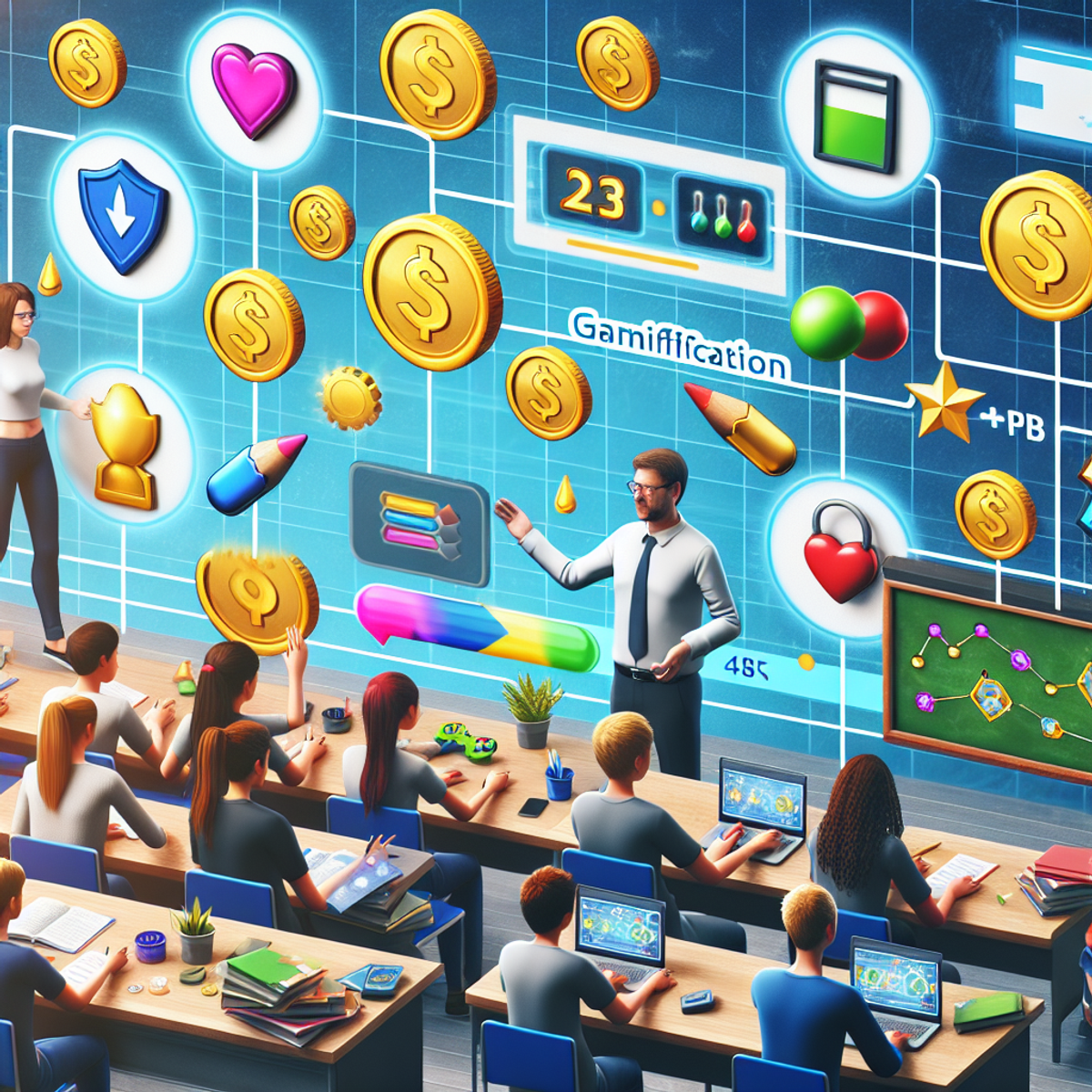
Gamification has proven to be an effective strategy for engaging students in the learning process. Python's extensive libraries for game development make it a valuable tool for creating personalized gamified experiences. By incorporating AI algorithms into Python-powered games, adaptive learning platforms can tailor game mechanics, difficulty levels, and challenges to match each student's abilities and preferences. This personalized approach not only enhances motivation but also fosters a deeper understanding of the subject matter.
Collaborative Learning Environments
Python's versatility extends beyond individualized learning experiences. It can also facilitate collaborative learning environments that encourage peer interaction and knowledge sharing. By integrating Python with communication tools, collaborative platforms, and version control systems, adaptive learning platforms can enable students to work together on projects, share resources, and collectively solve problems. This collaborative element enhances social interaction and promotes the development of teamwork skills.
In conclusion, the future of Python in driving innovation in personalized education is bright. With advancements in AI and education technology, Python will continue to empower developers to create adaptive learning systems that cater to the unique needs of each student. From enhanced learning analytics to intelligent tutoring systems, NLP-based feedback to VR/AR integration, personalized gamification to collaborative learning environments - Python's capabilities are poised to revolutionize the field of adaptive learning. By embracing Python as a powerful tool, educators can unlock the full potential of personalized education and provide students with truly engaging, effective, and tailored learning experiences.
Conclusion
The versatility and power of Python in personalized education and adaptive learning are undeniable. As an open-source, high-level programming language, Python offers a wide range of libraries and tools that can be harnessed to create dynamic and responsive learning environments tailored to individual students' needs. Embracing Python as a primary tool for advancing personalized education efforts holds tremendous potential for revolutionizing the way we approach teaching and learning.
Empowering Educators
By embracing Python, educators can tap into the vast array of resources available for developing adaptive learning systems. The intuitive and user-friendly nature of Python makes it accessible to educators with varying levels of technical expertise, empowering them to create personalized educational experiences that cater to diverse learning styles and preferences.
Fostering Innovation
Python's rich ecosystem of data science and machine learning libraries enables the development of sophisticated recommendation systems and adaptive learning algorithms. These tools can analyze large datasets to identify patterns in students' learning behaviors, ultimately enhancing the efficacy of personalized education initiatives.
Driving Collaboration
The widespread adoption of Python in the education sector fosters collaboration among educators, data scientists, and developers. This collaborative environment encourages the sharing of best practices, innovative ideas, and impactful strategies for leveraging Python in adaptive learning applications.
Encouraging Continuous Learning
As Python continues to evolve with advancements in AI and machine learning, educators have the opportunity to engage in continuous professional development. By staying abreast of the latest developments in Python-based adaptive learning technologies, educators can enhance their pedagogical approaches and enrich the educational experiences of their students.
Expanding Access to Quality Education
Python's role in adaptive learning extends beyond traditional classroom settings. Its application in online education platforms, e-learning modules, and educational software broadens access to quality education for learners across geographical boundaries and diverse socioeconomic backgrounds.
As we look towards the future, it is evident that Python will play an increasingly pivotal role in driving innovation in personalized education. By leveraging its capabilities alongside AI-powered systems, educators can continue to refine their approaches to curriculum design, assessment strategies, and instructional delivery methods. The dynamic synergy between Python and adaptive learning stands poised to transform the landscape of education by promoting inclusivity, engagement, and individualized pathways to academic success.
FAQs (Frequently Asked Questions)
What is the role of Python in personalized education and adaptive learning?
Python is being used as a tool for adaptive learning in education. It is a preferred language for developing adaptive learning platforms and AI-powered systems, including recommendation systems, due to its versatility and extensive libraries such as scikit-learn.
How do adaptive learning systems incorporate personalized experiences?
Adaptive learning systems incorporate techniques like collaborative filtering, content-based filtering, knowledge tracing models, reinforcement learning algorithms, and neural networks to provide personalized experiences based on individual learning styles, pace, and interests.
What are the techniques used in adaptive learning?
Adaptive learning systems use techniques such as collaborative filtering to analyze user preferences, content-based filtering to recommend similar educational content, reinforcement learning algorithms to adapt educational material for each student, and neural networks to build dynamic and responsive learning environments.
How can one create recommendation systems with Python and the scikit-learn library?
One can create recommendation systems by understanding how they work in the context of personalized education and following a step-by-step guide to building a simple recommendation engine with Python using the scikit-learn library.
What are some challenges and ethical considerations in personalized education with Python?
Challenges include privacy concerns and data security, while ethical considerations revolve around the responsible use of technology in adaptive learning environments. It is important to maintain privacy and ensure data security when implementing Python-based personalized education strategies.
What is the future outlook for Python in driving innovation in personalized education?
The future holds possibilities where Python and AI can revolutionize the field of adaptive learning through advancements in education technology. Embracing Python as a powerful tool for advancing personalized education efforts can lead to significant innovations.





Comments
Post a Comment